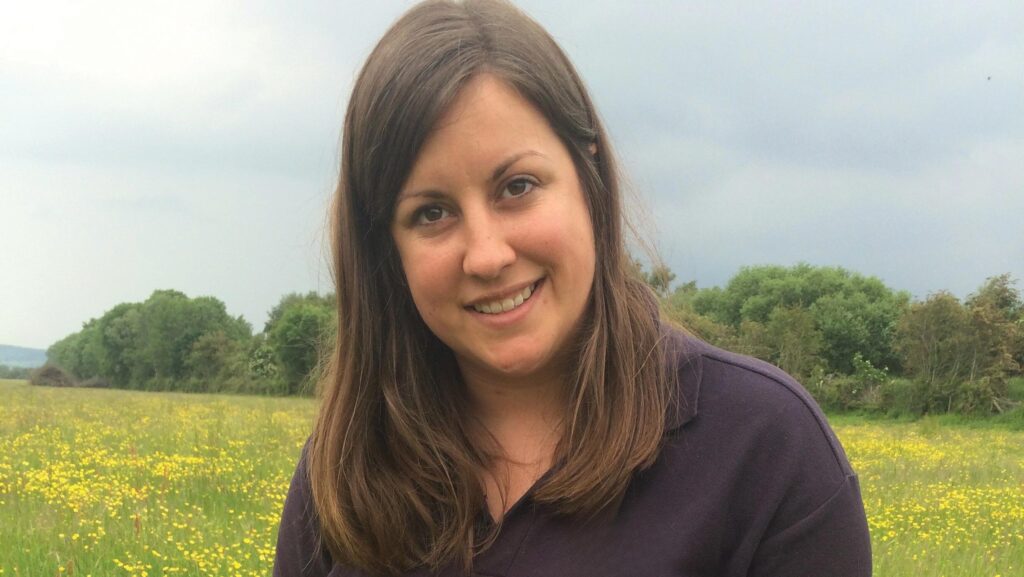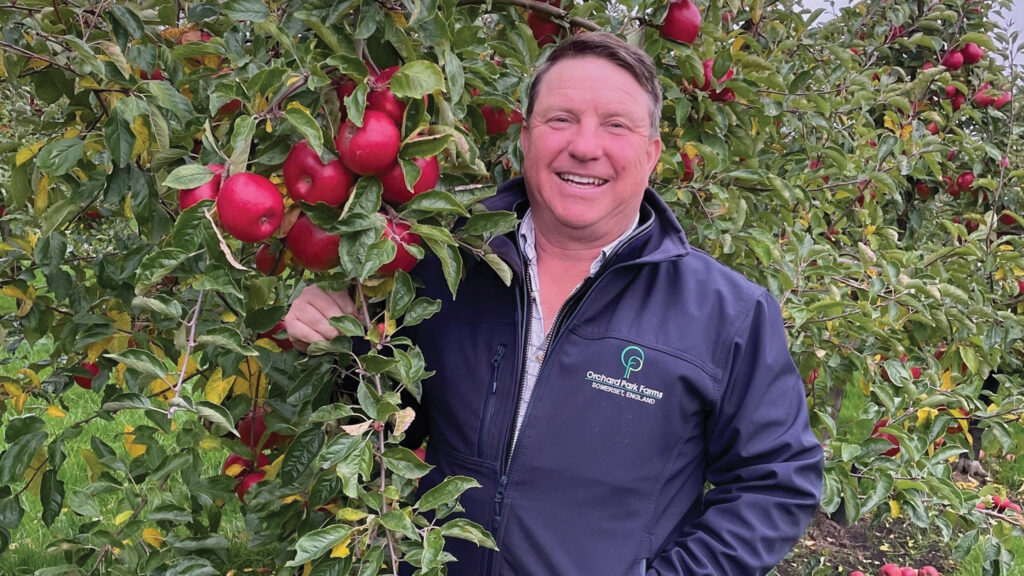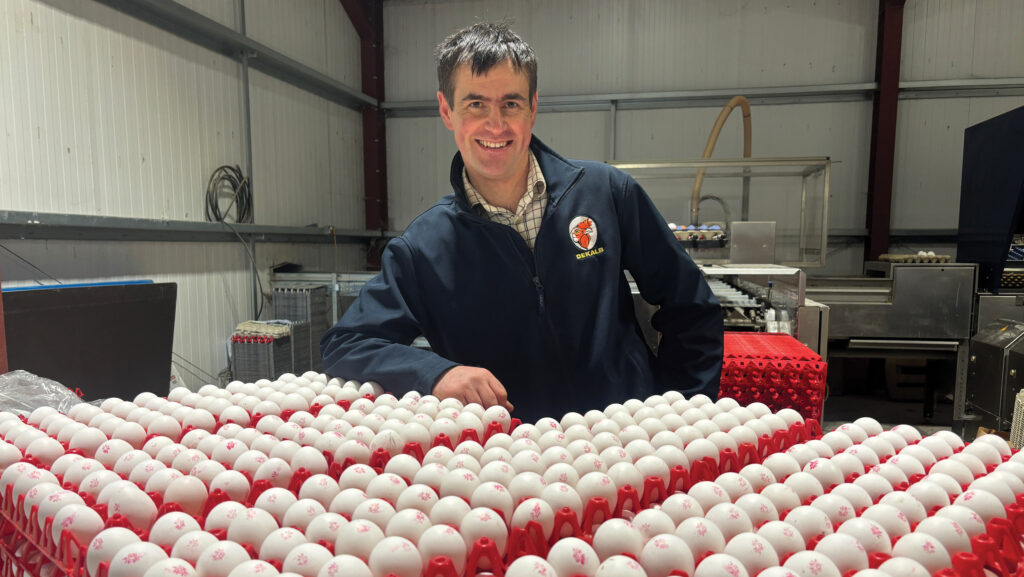Nuffield Bullock Award: Herefordshire adviser wins top prize
 Kate Speke-Adams © Herefordshire Rural Hub
Kate Speke-Adams © Herefordshire Rural Hub Kate Speke-Adams, the managing director of Herefordshire Rural Hub, an independent support service for the county’s farmers, is the winner of this year’s Bullock Award.
The award, named in honour of Steven Bullock, a former director of Nuffield Farming Scholarships, is given annually to the scholar who best used the experience of their travels in the subsequent decade.
The judges felt that Kate was a worthy recipient for her outstanding influence for positive change across a multitude of businesses in the area, having worked throughout that time to support farms with environmental and farming projects.
See also: Stacking income: What is it and how to do it on farm
Bullock Award judges
- Stephen Fell Former chairman, Nuffield UK and Leaf
- Meryl Ward MBE Former chairwoman of Lincolnshire Rural Support Network and AHDB Pork, current chairwoman of Lincolnshire Rural and Agricultural Chaplaincy
- Andrew Meredith Editor, Farmers Weekly
A Herefordshire native who grew up on a dairy farm, her career prior to doing a Nuffield scholarship in 2015 saw her work for both Natural England and the Environment Agency.
Some of this was delivering on-farm inspections, a role she said she found uncomfortable as it placed her in the “bad cop” role and she preferred a position where she could offer help.
Nuffield journey
Seeing both sides of this debate in a role that both enforced environmental law and promoted positive action prompted her Nuffield topic How are farmers re-engaged with their soils? Through fear, finances, regulation or education?
The travel and report attempted to understand which mechanisms are most effective for achieving change within agriculture at a time when food producers around the world were grappling with a wave of bad publicity over perceived poor stewardship of the land.
It concluded that a combination of regulation, knowledge transfer and financial rewards is more likely to engage the broad range of farm type and farmer personalities than any one single mechanism.
A post-scholarship move to rivers charity The Wye and Usk Foundation saw her begin the work of putting these principles into practice, as she supported the growth of its farm adviser team and oversaw on-farm project delivery.
Move to the hub
Then, in January 2023, she was appointed managing director of Herefordshire Rural Hub, an independent organisation Kate describes as the “Switzerland in the county”, delivering impartial advice to 1,900 farmers on a wide range of agricultural issues.
That impartiality was much in demand as the region was increasingly in the glare of the national spotlight as the River Wye became the focal point of rising public concern about farming’s role in poor water quality.
This in turn ramped up pressure on farmers from regulators and campaigners, making many reluctant to engage in what was becoming an increasingly acrimonious debate about who was to blame and what should be done.
The role of the hub, under Kate’s leadership, has been to maintain dialogue and share knowledge with all interested parties, including through convening the Farm Herefordshire partnership.
This is a group of organisations, including regulators, farming unions, charities and others, that work to “improve the health of the Wye catchment through sustainable farming systems”.
The hub has used its neutral role to work with researchers to support work to fill in the gaps in knowledge that still plague the debate and help to properly quantify the benefits and improvements farmers are delivering.
Landscape Recovery
In the past two years, the hub has taken on one of its most ambitious projects to date – acting as facilitator to the region’s 5,000ha Landscape Recovery scheme.
The project, which spans 50 farm holdings, won initial approval from Defra in 2023 and is now waiting for confirmation that it will be accepted into the implementation phase.
If it progresses, Kate says it will see radical land use changes that will make businesses – including some frequently affected by seasonal flooding – more resilient, sustainable and profitable.
For her patient and productive work in championing sustainable, profitable farming across one of England’s most prominent farming regions, the judges felt Kate was a worthy winner in another year when all of the finalists were of a very high standard.
Finalists
Neil Macdonald

Neil Macdonald © Orchard Park Farm
“Nothing sells cider like sunshine,” says Somerset apple grower and all-round cider supply chain expert Neil Macdonald, making 2025 a positive year for the sector.
Despite having interests in every part of the supply chain, he describes farming as his first passion, with the 100ha Orchard Park Farm home to 50,000 apple trees covering half the area.
The rest is down to income-generating biodiversity schemes, which also support a range of public-facing diversifications including everything from dog walking to axe throwing.
Prior to his Nuffield study, Neil had also co-founded the Orchard Pig cider brand, which was sold in 2016.
He took the upbeat title Cider Orchards: the Great British Success Story, as the topic for his scholarship report, as he sought to investigate whether there was a sustainable future for the sector – and how the gaps in research and development could be closed.
The decade since has been a whirlwind of activity.
The farm’s orchard has been maintained alongside contract managing an additional 250ha of orchards around Somerset that combined generate 2,500t of fruit for the business’s pressing and fermenting facility.
End-to-end service
The key outlet for this is an additional business Neil founded seven years ago, Somerset Cider Solutions, a 1,860sq m packing facility that now also provides the service to more than 100 cider brands and white label outlets.
This in turn led two years ago to him launching an online cider gift business, The Somerset Cider Company, which now packs and sends about 20,000 parcels a year including advent calendars, subscription boxes and more.
These businesses, which in the round offer a complete service to small brands without their own facilities, have seen Neil become a well-respected adviser, with other cider makers seeking his advice on sales, marketing and distribution.
The judges commended Neil for his industry leadership, support for emerging businesses and focus on sustainable production.
Gordon Whiteford

Gordon Whiteford © June Whiteford
Moray mixed farmer Gordon Whiteford caught the farming bug early, growing up on a dairy farm.
However, he had an unusual setback during his childhood when his father decided to pursue a career in the ministry and left his tenanted dairy farm.
Undeterred, he first took on employed positions before deciding in 2005, at the age of 24, that he wanted to work for himself, securing a free-range egg contract, a mobile poultry unit for 3,000 birds and a 3ha tenancy.
By 2012 that had turned into a 150ha tenancy on the Crown Estate in Scotland, where the business remains today, having grown in part thanks to its own Highland Eggs brand that caters to local businesses and consumers.
Switch to organic
He describes his 2014 Nuffield scholarship, entitled Improving bird welfare on free-range systems, as a turning point that emboldened him to shift to organic production as a way to help extract a premium from the market.
It also helped give him the confidence to take the rare step of stocking white hens, which lay white eggs – until recently, an oddity in the UK but common elsewhere.
Compared to a brown hen, these birds typically have lower mortality, greater longevity of laying and are less aggressive he says, giving him an average of 521 eggs per hen in a recent flock compared to an overall UK industry average of around 320.
Yet it took courage to make the switch as the overwhelming perception in the industry is that the consumer does not want white eggs – something that he has found to be false.
The business has also expanded and diversified into arable, dairy and direct selling through an on-farm shop that includes a range of home-produced ice cream.
The judges commended Gordon for his entrepreneurial spirit, business acumen and willingness to take calculated risks.
